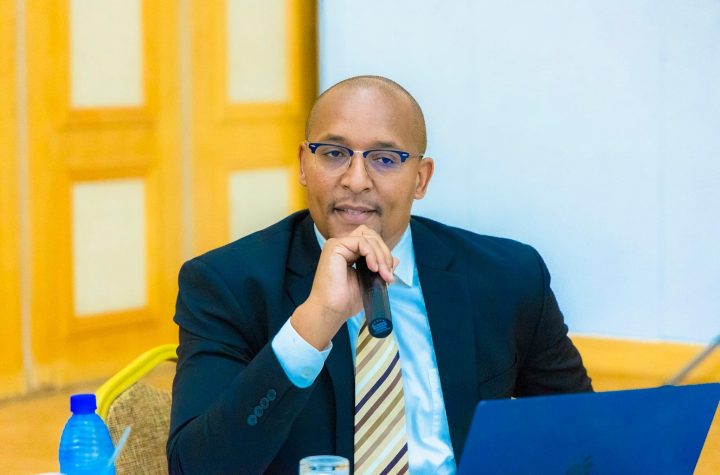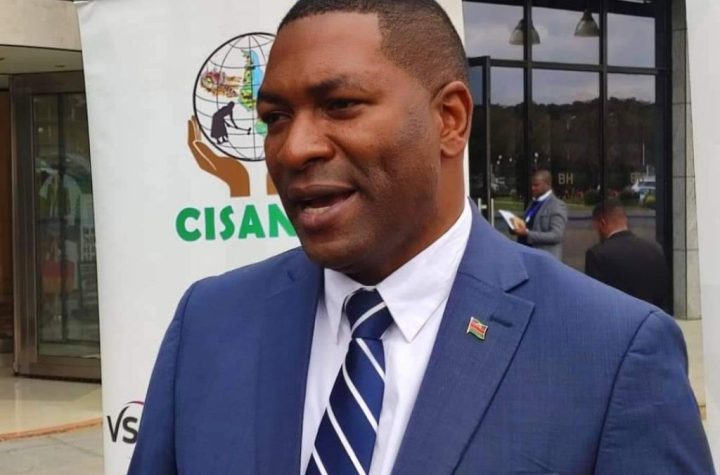
By iElections reporter
The voter roll is out, the numbers are in, and Malawian men—those ever-enthusiastic political analysts of bar stools and WhatsApp groups—have once again fumbled at the goal line of civic responsibility. According to the Malawi Electoral Commission (MEC), a staggering four in ten eligible men decided that registering to vote was just a bit too much democracy for one day. While they were dodging registration like it was a bad network connection, women across the country picked up the slack—and then some.
With only one female presidential candidate Former President Joyce Banda in the race, you might expect women to be cautiously optimistic. Instead, they’ve arrived at the voter registration centres in force, armed with IDs and determination. Out of 7,203,390 registered voters for the 2025 General Elections, a commanding 4,114,720 are women—57.1% of the total. The men, meanwhile, managed 3,088,670 registrations, making up 42.9%. To put it bluntly, women have not only taken the wheel—they’ve also changed the tires, filled the tank, and brought snacks for the road.

The total number of registered voters represents 65.7% of Malawi’s projected 10,957,490 eligible voting-age population. And while the country may be in political and economic crisis, at least one thing is clear: when it comes to democracy, Malawian women aren’t waiting for an invitation—they’ve RSVP’d early and brought friends.
The female registration rate stands proudly at 70.8% of the projected adult female population. Compare that to a more modest 60% turnout for men. Once again, women are showing up while the men are still arguing about which football team the presidential candidate supports.
Some districts stood out more than others—and none more than Luchenza Municipality, which apparently decided that democracy should be done with flair. Luchenza achieved a jaw-dropping 120.7% registration rate. That’s right—more people registered than actually live there (10,237 registered vs. 8,479 projected). It’s either a case of overenthusiastic civic engagement, a miscalculation in population estimates, or someone sneaked in a few bonus voters. Female registration here hit 124.4%, suggesting that not only did women show up, they brought along anyone even remotely eligible.
Likoma also punched above its weight, registering 85.4% of its small population, while Lilongwe District pulled in the highest number of registered voters overall—826,779 to be exact, with women once again leading at 56.4%. Zomba City proved nearly gender-neutral in its strong 78.8% coverage, while Nkhotakota (72.3%), Ntchisi (71.5%), and Kasungu (71.2%) rounded out the list of councils where registration didn’t require divine intervention.
And then there are the underperformers—those districts where voter registration numbers are so low, you’d think people were being asked to donate kidneys, not elect leaders. Mzuzu City won the gold medal for least effort, recording just 49.5% turnout. Blantyre District fared only slightly better at 54.7%, though at least both genders were equally underwhelming in their participation. Thyolo joined the civic absentee list with 57.6% turnout, where women registered at 60.5% and men barely cleared 39.5%. Lilongwe City, despite being the capital, underdelivered at 57.8%, though the gender split there was more or less even. Neno squeaked out 61.8%, still short of any electoral standing ovation.

Throughout the country, the gender gap in voter registration remains glaring—and persistent. Councils like Mangochi Municipality (55.4% female), Balaka (62.2% female), Ntcheu (58.3% female), M’mbelwa (55.1% female), and Dowa (54.9% female) make it abundantly clear that women are not only politically engaged—they’re probably more ready to run the country than half the people currently campaigning to.
Zomba City and Zomba District offered the most balanced gender turnout, but in most other councils, women carried the democratic baton while the men were still trying to figure out where the race started.
The MEC, undoubtedly relieved to have survived the release of the roll without a demonstration or Police beating Namiwa (they failed to arrest suspects), praised the overall turnout—particularly from women—and reminded all registered voters to verify their information before polling day. In other words, no one should show up on election day shouting “My name is not there!” after having ghosted the registration exercise like a bad date.
One presidential candidate may be female, but the message from the voter register is loud and clear: the women of Malawi are not just participating in democracy—they’re leading it. And if the men want to catch up, they might want to start by showing up. Or at the very least, finding their voter certificate before their wives use it as a bookmark.





More Stories
MACRA DG Daud Sulieman fired
West, not east gives Malawi more
Bank cartels fleece Malawi forex